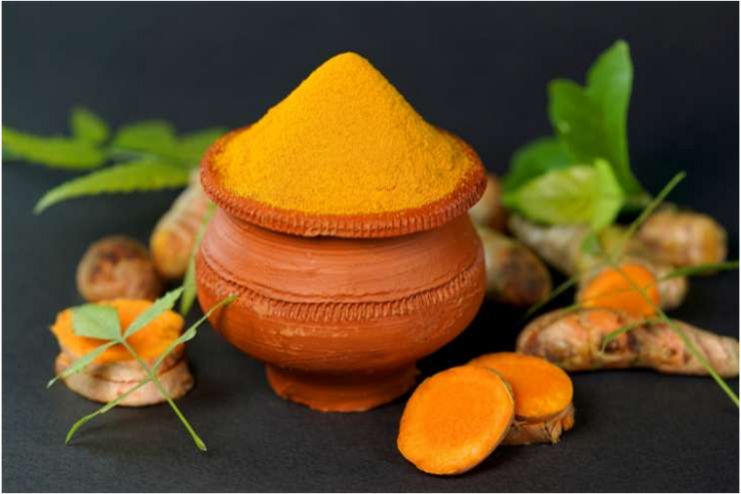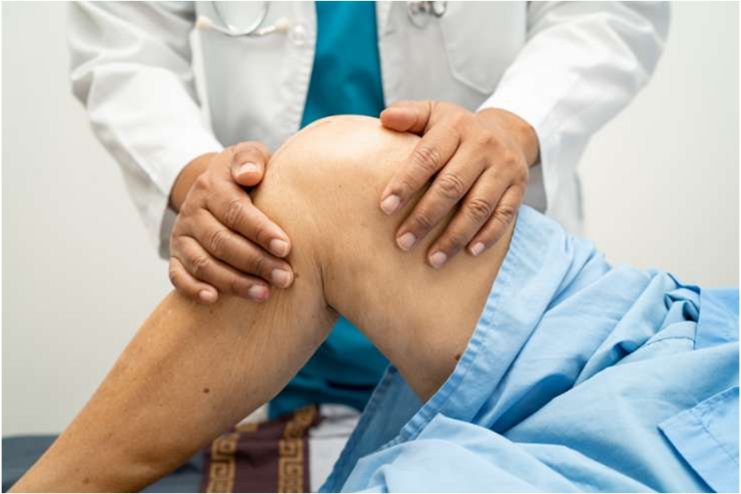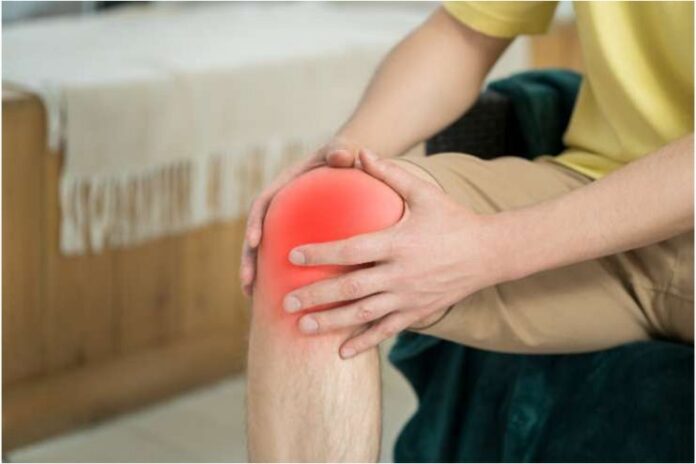Affiliate Disclaimer
Some links in this article are affiliate links. We may earn a small commission if you make a purchase through these links, at no extra cost to you. We only recommend products we find useful to our readersDo you have joint pain that makes it challenging to go about your everyday activities? You’re not alone. Millions have arthritis, which leads to stiffness, pain, and decreased movement. Even simple tasks can become challenging due to the persistent discomfort.
Inflammation, which is the body’s natural reaction to arthritis, can increase pain and damage joints if it continues over time. Many individuals seek natural options to effectively manage their symptoms, even though traditional medications can offer relief.
Turmeric, a golden spice, has been a part of traditional and Ayurvedic medicine for thousands of years. Its main compound, curcumin, is renowned for its powerful anti-inflammatory and antioxidant properties. For those with arthritis, turmeric may improve mobility, alleviate joint pain, and reduce swelling.
This article explores effective methods to incorporate turmeric into your daily routine. Discover how this natural remedy can offer relief and comfort through topical applications and soothing infusions. Let’s get started!
Read More: How Golden Milk (Turmeric Latte) Can Help Regulate Your Period
Health Benefits Of Turmeric

Turmeric has been widely studied for its therapeutic properties, primarily due to the presence of compounds called curcuminoids. Among these, curcumin is the most prominent, and research continues to reveal its significant health benefits.
- Anti-Inflammatory Properties
Curcumin is a powerful natural anti-inflammatory compound. As a bioactive substance, it helps reduce inflammation, a key factor in many chronic conditions, including arthritis. While higher doses may be required for therapeutic effects, curcumin’s ability to target inflammation makes it a valuable addition to any anti-inflammatory treatment plan. Reducing chronic inflammation is essential in preventing and managing various health conditions, including arthritis. - Antioxidant Effects
Oxidative stress is a contributing factor to many diseases and the aging process. Free radicals—highly reactive molecules that can damage essential cellular components like proteins, DNA, and fatty acids—are responsible for this oxidative damage. Curcumin, with its unique chemical structure, acts as a potent antioxidant. It helps neutralize these free radicals, reducing oxidative damage and potentially protecting the body against a range of health issues, including joint degeneration in arthritis. - Cancer Protection
Curcumin has shown promise in cancer research, demonstrating potential to influence the growth and spread of various cancer types. Studies suggest that curcumin can help slow down the development of cancer by modulating multiple molecular pathways involved in cell survival, inflammation, and oxidative damage. As such, curcumin is being investigated as a complementary treatment for cancer. - Support for Brain Health and Alzheimer’s Disease
Alzheimer’s disease, the most common form of dementia, affects millions worldwide. One of the key factors contributing to Alzheimer’s is oxidative damage and chronic inflammation in the brain. Research indicates that curcumin may help protect against these two factors, reducing the risk of cognitive decline and supporting brain health. By addressing both inflammation and oxidative stress, curcumin shows promise as a therapeutic aid for preventing or managing Alzheimer’s disease.
Read More: Soothing Anti-Inflammatory Turmeric Cauliflower Soup Recipe
Why Turmeric for Arthritis Pain?
Why curcumin? Turmeric, the spice from which curcumin is derived, has well-known anti-inflammatory properties. It has been used to address various health issues, including arthritis and cardiovascular health.
Osteoarthritis is the most common type of arthritis and is a degenerative joint disease. It primarily affects older adults, but it can also occur earlier in middle age, especially following a joint injury.
While there are various treatments available, including exercise, braces, canes, weight loss, and pain relievers or anti-inflammatory medications, none have been proven to be completely effective, and there are currently no definitive solutions.
Turmeric, a familiar spice, contains curcumin, a naturally occurring chemical that may help reduce osteoarthritis pain, according to a study published in BMC. Researchers recruited 139 participants with osteoarthritis symptoms in their knees for the survey.
Their nonsteroidal anti-inflammatory drug (NSAID) treatment was necessary since their symptoms were at least reasonably severe. Doctors administered Diclofenac (50 mg, twice daily) or curcumin (500 mg, three times daily) to them as NSAIDs for a month.
Researchers evaluated patients on days 7, 14, and 28 of the study. In addition to secondary indicators such as knee function (KOOS), flatulence, ulcers, weight changes, and overall treatment satisfaction, the primary focus was pain severity as measured by a visual analog scale.
By days 14 and 28, curcumin and diclofenac showed comparable improvements in knee function and pain alleviation. Interestingly, curcumin outperformed diclofenac in reducing flatulence incidents by day 7.
How To Use Turmeric For Arthritis
If you’re wondering how to incorporate turmeric into your routine for arthritis relief, you’re in luck! There are several effective ways to use turmeric to reduce pain and inflammation. Whether through supplements, as a spice in your meals, or even in beverages, turmeric offers versatile options for arthritis management. Here are some of the most popular methods:
- Incorporate into Food and Beverages
Turmeric powder is a great addition to your daily diet and can be easily added to a variety of dishes. It pairs well with roasted meats, soups, stews, and curries, adding both flavor and health benefits. One of the most traditional ways to enjoy turmeric is by drinking golden milk—a warm, comforting beverage made by mixing turmeric with milk (or plant-based alternatives) and a touch of honey or cinnamon. This drink is soothing and rich in curcumin, the active compound that helps combat inflammation.
- Turmeric Supplements
For those looking to maximize the benefits of turmeric, curcumin supplements are an excellent option. Available in various forms such as pills, capsules, and gummies, these supplements are formulated to help the body absorb curcumin more effectively. Many people opt for turmeric supplements as a convenient way to get a concentrated dose of curcumin to target inflammation and joint pain. - Topical Application
In addition to consuming turmeric, you can also apply it topically for localized relief. While the body doesn’t absorb turmeric when applied to the skin, it can still offer benefits for skin conditions. Topical turmeric may help soothe irritated skin and reduce the appearance of inflammation on the surface. For arthritis sufferers, applying a turmeric paste to affected joints may provide some external relief from swelling or discomfort.
These are just a few of the ways you can use turmeric to help manage arthritis symptoms. By incorporating this powerful spice into your routine, you can take advantage of its natural anti-inflammatory and antioxidant properties.
Turmeric Supplements for Arthritis Treatment

Turmeric supplements, particularly those containing curcumin, are a popular choice for managing arthritis symptoms. These supplements provide a concentrated dose of curcumin, the active compound in turmeric that helps reduce inflammation and pain. They can be an effective addition to your daily routine, potentially aiding in the management of arthritis over time.
Recommended Dosage
Experts typically recommend a dosage of around 500 milligrams of curcumin twice daily for optimal results. However, before incorporating any turmeric supplement into your regimen, it’s important to consult with your doctor. Turmeric and curcumin supplements may interact with certain medications or cause side effects in some individuals.
If you’re currently taking medications, particularly for conditions like blood pressure or blood thinning, always check with your healthcare provider to ensure there are no adverse interactions.
Alternative Options: Essential Oils
In addition to curcumin capsules, turmeric essential oil can also be used as part of an arthritis treatment plan. When diluted with a carrier oil, it can be applied topically to affected areas, offering potential relief from inflammation and joint pain. a
Top Turmeric Supplements for Arthritis Relief
Here are some of the top-rated turmeric supplements that can be beneficial for arthritis treatment:
- Life Extension Advanced Curcumin Elite Turmeric Extract
Known for its high absorption rate, this supplement is formulated to deliver curcumin more effectively to the body. Buy Here - Garden of Life Extra Strength Turmeric
A potent option that offers extra strength and includes additional supportive ingredients for joint health. Buy Here - Nature Made Turmeric Curcumin Herbal Supplement
This widely available supplement is a trusted choice for those looking for an affordable yet effective turmeric option. Buy Here
Always remember to consult with your healthcare provider before starting any new supplement, as individual needs and reactions can vary.
Read More: 11 Skin Benefits Of Turmeric – Get The Natural Glow On
Side Effects of Taking Turmeric
While turmeric is widely regarded as a natural remedy with minimal side effects, it’s important to be aware of potential risks, especially when taking curcumin supplements.
Allergic Reactions
Some people may experience allergic reactions, especially those who work with turmeric powder. Curcumin can trigger the release of histamine and antibodies, leading to skin or respiratory issues in sensitive individuals.
Gallbladder Effects
Curcumin can stimulate bile release from the gallbladder, which may benefit digestion and help prevent gallstones in healthy individuals. However, those with existing gallbladder problems should consult a doctor before use.
Oxidative Stress
Excessive turmeric intake could disrupt the balance of free radicals and antioxidants in the body, potentially leading to oxidative stress and DNA damage.
Bleeding Risk
Curcumin has antiplatelet properties, which can reduce blood clotting. This may increase the risk of bleeding, especially for those on blood-thinning medications or with clotting disorders.
When to See a Doctor

While turmeric can be beneficial for managing arthritis pain, it’s important to know when you should seek professional medical care. Here’s when you should see a doctor:
- Persistent or Severe Pain
If you experience significant or ongoing joint pain that doesn’t improve with turmeric or other treatments, it’s time to consult a doctor. This is especially important if the pain limits your ability to perform everyday tasks. - Obvious Swelling or Limited Movement
Swelling, stiffness, or restricted range of motion in your joints could indicate a more serious issue. If these symptoms interfere with your daily activities, professional evaluation is necessary. - Additional Symptoms
If you notice signs like warmth, redness, or visible joint deformities, it may point to an underlying condition that requires immediate medical attention, such as infection or advanced arthritis. - Worsening Symptoms or Side Effects
If your symptoms worsen over time or if you experience negative side effects from turmeric supplements (such as gastrointestinal issues or allergic reactions), contact your doctor right away.
Important Note:
Turmeric can be a helpful supplement for reducing inflammation and pain, but it should never replace professional medical treatment. While it may alleviate symptoms, it does not address the root cause of arthritis. A healthcare provider can recommend a comprehensive treatment plan that may include medication, physical therapy, or lifestyle changes.
By prioritizing your joint health and seeking medical advice when necessary, you can ensure that you’re managing arthritis in the safest and most effective way.
Read More: Turmeric For Arthritis – Is It Effective?
Conclusion
Turmeric’s powerful anti-inflammatory properties make it a natural and effective remedy for arthritis pain. Whether through turmeric tea, golden milk, supplements, or topical treatments, there are numerous ways to incorporate this golden spice into your daily routine. Regular use can help improve joint mobility, reduce pain, and alleviate swelling.
If you’re considering adding turmeric to your arthritis management plan, start with the recommended methods and monitor how your body responds. Adjust your intake as needed based on your experience.
However, it’s important to remember that turmeric is a supplementary treatment. If you experience severe or persistent pain, significant swelling, or difficulty moving, it’s crucial to consult a healthcare professional. They can help develop a comprehensive treatment plan tailored to your needs.
Embrace the natural power of turmeric and take a step toward greater comfort and improved mobility!
-
Jun 2017Written by Prajakt
-
Apr 2025Edited by Ankita
References
https://www.health.harvard.edu/blog/curcumin-for-arthritis-does-it-really-work-2019111218290
- https://www.goodrx.com/well-being/supplements-herbs/how-to-take-turmeric
- https://www.health.harvard.edu/staying-healthy/turmeric-benefits-a-look-at-the-evidence
- https://www.hopkinsmedicine.org/health/wellness-and-prevention/turmeric-benefits
- https://arthritis.ca/treatment/emerging-treatment-and-research/turmeric
- https://www.healthline.com/nutrition/top-10-evidence-based-health-benefits-of-turmeric#cancer
- https://www.verywellhealth.com/10-serious-side-effects-of-turmeric-8703958
- https://www.webmd.com/vitamins/ai/ingredientmono-662/turmeric
In this Article


















